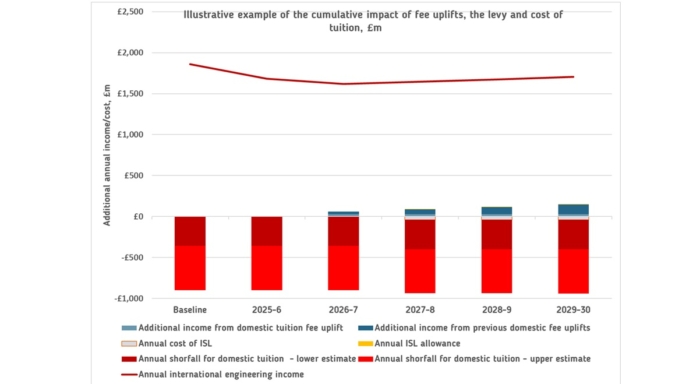On 24th October 2012, the House of Commons Science and Technology Select Committee heard oral evidence on the inquiry into engineering skills.
“We compete in a high labour cost economy; therefore, to compete on the cost of labour is going to take us nowhere. We need to compete with the best skills and the best technologies. What we are seeing in aerospace and defence, and in civil and defence nuclear as they get off the ground, is that an increasing level of higher skilled employees is required. That means that I am looking for employees with experience and competence. This is probably common across many engineering sector employers, but I am finding it harder and harder to get that type of competence and experience.” Andrew Churchill, Managing Director, JJ Churchill Ltd
The uncorrected transcript is available here. Or download as a pdf.
——————————————————————————————————–
The next evidence session was heard on 7 November and included evidence from the Principal of the JCB academy, headteachers and pre-university students.
“I always loved design and technology at school, so when I came to choose my GCSEs and school offered an engineering diploma I jumped at the chance of taking it, because for me it was the idea of going to college alongside school and using all their equipment and the practical side to it. I thought I would give it a go. Just before I definitely decided to take it, my physics class offered a trip to a lecture on the Bloodhound supersonic car. I went along, and it just was absolutely fascinating. For me, that was the turning point that I had to study engineering, build cars and race them across the world. After all the experience I have had I have moved slightly away from cars, but that was definitely my turning point and the thing that made me want to take engineering as a subject.” Georgie Luff, Student, Newstead Wood School
The uncorrected transcript is available here. Or download it as a pdf.
NB Neither witnesses nor Members have had the opportunity to correct the record. The transcript is not yet an approved formal record of these proceedings.
——————————————————————————————————–
The third evidence session was heard on 21 November and included evidence from Dr Bill Mitchell, Nigel Fine and Matthew Harrison from RAEng, Carole Willis, Elizabeth Truss MP and Matthew Hancock MP.
The Engineering Professors’ Council is a member of E4E.
“…the ability to bring the profession together through a single co-ordinated voice and to articulate exactly what the profession’s position is on matters of education, learning and skills, to be focused in that communication and to be joined up in our approach to disseminating that information to a wider audience, is very much at the heart of what E4E is doing”. Nigel Fine
“We have an excellent relationship with the Department for Business, Innovation and Skills. I think that it comes from our position as independent domain experts. If you want to get good independent engineering advice, a natural place to go is the engineering community. The advantage of the Academy is its fellowship of nearly 1,500 of the most eminent engineers. They are multidisciplinary and independent, so we see tremendous volunteer contributions. As our fellows walk through the door, they take off their corporate or academic hats, and even their institutional hats. They are there to offer independent advice on matters relating to engineering, which in recent weeks has very helpfully come more centre stage because of the real connection between jobs and growth, productive industry and engineering”. Matthew Harrison
“Two things need to be done. The first is to make the data more accessible. When we wanted to know more about the FE system, E4E had to push really hard with BIS to make a positive case and get the stuff released. It is excellent now that it is out, but more people should know more things about it. I’ll give you an example. An E4E report looked at the combination of maths and science taken by 16-year-olds. Only half of our 16-year-olds achieve that very important combination of at least a C grade in mathematics and at least two science GCSEs at grade C. It varies strongly around the country, and it starts to look a bit like a postcode lottery, where parts of the country have surprisingly low levels of participation in this combination of STEM subjects and other places are much higher. When we think about the labour market, those are the sorts of pieces of information that parents really need to know, because this is their kids’ futures. As for the work that we have done on FE, we have a report coming out next week showing that, for school sixth forms, 49% of qualifications are in STEM subjects. That is brilliant, but in FE colleges, for young people the figure drops to 30%, and for adults it drops to 20%.
The message is really clear: if you are a young person, get engaged with STEM and be successful with STEM, because the chances of re-engagement as an adult are so much lower. It is a real problem for us trying to find sustainable growth in our economy because, of course, it is our adults who provide the muscle to get that growth. Of those adults who are engaging in further learning and training, 80% are outside STEM, and it is that 20% that needs to grow”. Matthew Harrison
The uncorrected transcript is available here. Or download it as a pdf.




